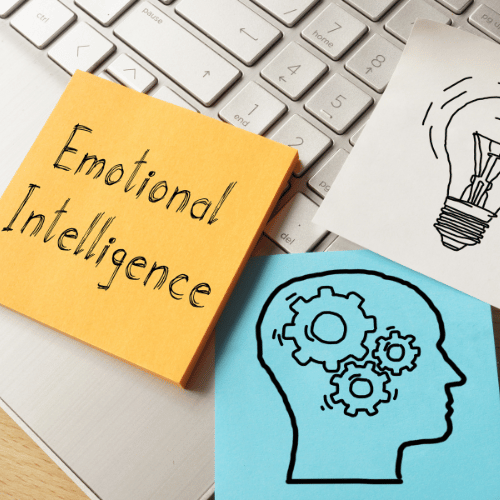- admin
- May 17, 2024
- No Comments
Understanding and Improving Emotional Intelligence to Enhance Personal and Professional Relationships
To build strong personal and professional relationships in today’s busy world, you need to be able to understand and control your emotions. Emotional intelligence (EQ) is the key to getting along with others, solving problems, and living a happier life.
This article talks about the idea of emotional intelligence, why it’s important, and some useful ways to improve it.


Defining Emotional Intelligence
When we have emotional intelligence, we can recognize, understand, and control our own emotions as well as the emotions of other people. Being aware of how emotions affect behavior and using this knowledge to guide your actions and thoughts is part of it.
Importance of Emotional Intelligence in Personal and Professional Relationships
Having a lot of emotional intelligence helps you connect with others more deeply, talk to them more openly, and settle disagreements quickly. For professionals, it improves leadership, teamwork, and the overall mood of the workplace.


Understanding Emotional Intelligence
Key Components of Emotional Intelligence:
- Self-Awareness: being able to see and understand your own feelings.
- Self-Regulation: taking care of your feelings in a healthy way.
- Motivation: Using feelings to drive yourself to reach your goals.
- Empathy: being able to understand and share someone else’s feelings.
- Social Skills: managing relationships to get people to do what you want them to do.
How Emotional Intelligence Differs from IQ
EQ is a test of emotional and social skills, while IQ is a test of cognitive skills like reasoning and logic. Both are important, but EQ is usually more important for success in both your personal and professional life.
Benefits of High Emotional Intelligence
- Enhancing Personal Relationships
People with high EQ are better at navigating social situations, which can help them build stronger, more meaningful relationships. They are better at talking to others, seeing things from other people’s points of view, and handling disagreements.
- Boosting Professional Success
A high EQ can help you lead, make decisions, and work with others better at work. People who have a high EQ are often better at their jobs and can adapt to new situations.


Strategies to Improve Emotional Intelligence
1.Self-Awareness Techniques:
- Mindfulness Meditation: Doing it regularly can help you become more aware of your feelings.
- Journaling: Writing down your thoughts and feelings in a journal can help you learn more about yourself.
Feedback: Ask people you trust to give you feedback on how you’re feeling and acting.
2.Practicing Self-Regulation:
- Pause Before Reacting: Give yourself a moment to think before you react to things that make you feel bad.
Stress Management - Techniques: Do yoga, deep breathing, or other activities that help you relax.
- Healthy Lifestyle: includes eating a variety of foods, working out regularly, and getting enough sleep.
3.Developing Empathy:
- Active Listening: means paying close attention and not talking over other people.
- Perspective-Taking: Try to see things from the point of view of other people.
- Emotional Validation: Validate and acknowledge other people’s feelings.
4.Improving Social Skills:
- Effective Communication: Talk to people in a clear and confident way.
- Conflict Resolution: Learn how to settle disagreements and use what you’ve learned.
- Building Rapport: Spend time with other people and be interested in their lives.
5.Enhancing Motivation:
- Set Personal Goals: Write down clear, attainable goals that are in line with your values.
- Self-Motivation Techniques: Visualize and say positive affirmations.
- Find Your Passion: Do things that you are really interested in.


Emotional Intelligence in the Workplace
- Building Effective Teams
Having a high EQ is important for making teams that work well together. People on a team with high emotional intelligence work together better, help each other out, and know what each other’s strengths and weaknesses are.
- Leadership and Emotional Intelligence
Emotional intelligence is often a trait of good leaders. They know how to control their own feelings, inspire and motivate their teams, and deal with stress and setbacks in a strong way.
Conclusion
Being emotionally intelligent is a very important skill that can make both personal and professional relationships much better. You can handle social situations better, make stronger connections, and be more successful in all areas of your life if you understand and improve your EQ.
You can start using these strategies right away to boost your emotional intelligence and start enjoying life more emotionally intelligently.







